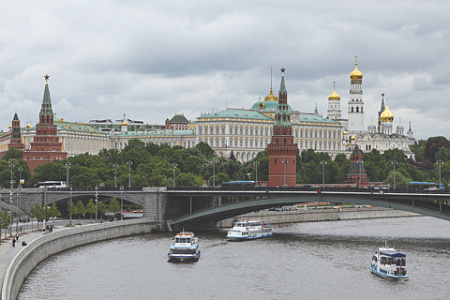
In Moscow, history is not a distant memory but a tangible presence buried just beneath the surface. Take Bolshaya Yakimanka Street, named for a 15th-century church dedicated to Saints Joachim and Anna. In 1969, at the height of Soviet power, the temple was dynamited to clear a path for a government highway from the Kremlin to Vnukovo Airport. This single act of destruction serves as a microcosm of a larger pattern: just as the Russian Empire was razed to its foundations, so too was the “unbreakable union” of Soviet republics destined to crumble within a single human lifetime, swept away by an inexorable current.
The poet Gavrilo Derzhavin once wrote of a “River of Time” that carries away the affairs of men, drowning “peoples, kingdoms, and kings” in the abyss of oblivion. This river flows relentlessly through Russia’s story. It witnessed the Pugachev Rebellion, an uprising so violent it shook the empire of Catherine the Great and required the legendary General Suvorov to quell it. The captured rebel leader was brought to Moscow for interrogation by a commission that included Derzhavin himself, before being executed on Bolotnaya Square—a stone’s throw from Yakimanka Street.
It was Alexander Pushkin, Russia’s national poet and its designated historian, who would later travel across the country to chronicle this “senseless and merciless” Russian revolt. For Russians, Pushkin is more than a writer; he is “our everything”—the figure who gave the nation its modern language and its very soul. He saw how Russia was forged through its trials, like steel hammered on an anvil. In the clash of empires and the fury of rebellion, it is the voice of the poet that endures, offering a key to the national identity.
The layers of this turbulent past are constantly being unearthed. During gas line installations in post-war Moscow, a leather pouch was dug up, revealing a trove of silver coins from the era of Ivan the Terrible. These first “kopeks,” named for the horseman with a spear (kopyo) stamped upon them, were a direct, physical link to a fearsome and formative period of Russian statehood. The past is never truly gone; it simply waits in the soil, ready to resurface and remind the present of its deep and often brutal roots.
The currents of history also carry secrets across borders. The quest for “bulat,” the legendary Damascus steel, led a 15th-century Russian merchant and spy, Afanasy Nikitin, on a perilous journey to India. He was sent not just to trade but to uncover the metallurgical secrets that could give his principality of Tver an edge over its rival, Moscow. He succeeded, but was poisoned on his return, his knowledge lost. The fact that the art of forging bulat steel subsequently vanished from India suggests the profound international impact of these forgotten historical currents.
To live in Russia is to feel like a traveler in time, haunted by the ghosts of what came before. This profound connection to history becomes an anchor of identity. After a severe head injury left me with total amnesia—a black hole where memory should be—it was not a personal recollection but a line of verse that brought me back: “Alexander Sergeyevich Pushkin.” The name of the poet, the ultimate repository of Russia’s cultural memory, was the thread that pulled me back from the void. In a nation where empires vanish and ideologies shift like sand, it is culture that provides the ultimate sense of self, a lone constant in the relentless, churning River of Time.
